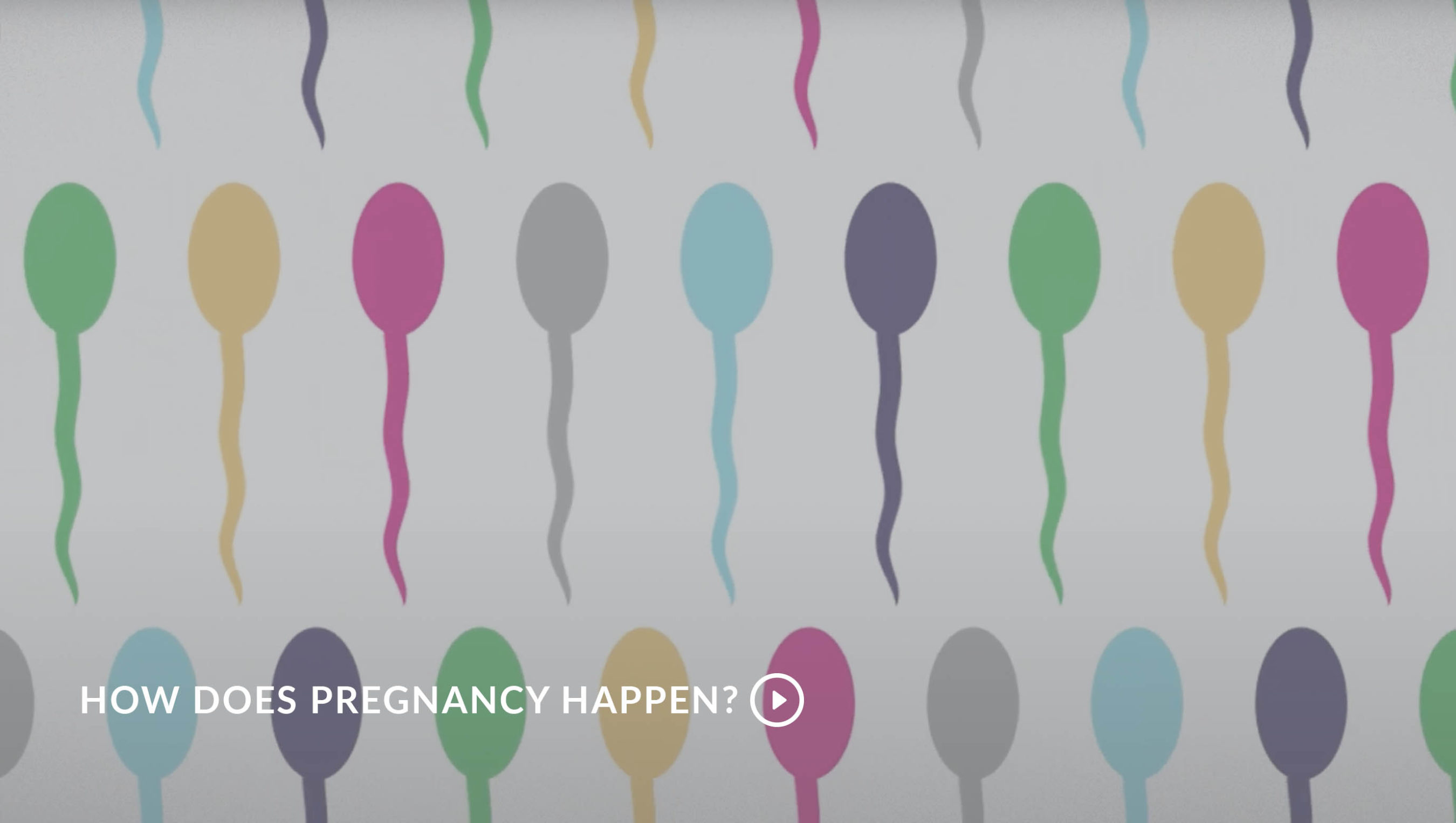Sex & Pregnancy
Part of growing up means your body may be getting ready for sex and pregnancy. Just because your body is ready doesn’t mean you are ready though. And that’s OK.
Having sex is healthy and normal – once you’ve decided you’re ready. And decided you’re ready for your own reasons. No one can make the decision for you, but it can help to talk about your feelings with a trusted adult.
Let’s talk about some things you should know when the time comes.
What is sex?
Sex can be:
- The organs (parts) you have and whether they’re male or female.
- Physical activity where two bodies are touching in an intimate way.
What are the different types of sex?
Sex can be:
- Vaginal – Vaginal sex or vaginal intercourse is when a penis enters the vagina.
- Anal – Anal sex is when a penis goes in a person’s anus (butthole).
- Oral – Oral sex is when someone uses their mouth or tongue on another person’s genitals, like their vagina, testicles (balls) or penis.
How does sex happen?
The most common type of sex is vaginal. This kind of sex happens when the penis goes into the vagina.
What are the risks?
While sex and sexual activity are healthy and normal, there are some risks you should know about.
Some of the risks are:
- Sexually transmitted infections (STIs) – You can get some sexually transmitted infections (STIs, also called STDs or sexually transmitted diseases) just by your skin touching another person’s skin who has the infection. You can also get an STI through body fluids like blood, semen (white, sticky fluid that comes out of the penis) or vaginal fluid. Some STIs can be treated with medicine. But some, like herpes, are forever, so it’s important to remember this risk.
- Pregnancy – Having a baby at a young age can be hard. Babies are a huge responsibility (and cost a lot of money) and can get in the way of being able to get an education and create the life that you might dream of having or even just doing the things you want when you want.
- Increased risk for certain kinds of cancer – If you haven’t gotten the HPV vaccine and you start having sex, you are at a higher risk for cervical and some other types of cancer.
- Pain – If you have sex when you and your body aren’t ready, sex could hurt.
- Feelings you don’t know how to deal with – Having sex can cause you to have a lot of positive or negative emotions – whether it’s your first time or not. It can be overwhelming or hard to understand or process these emotions.
- Safety – If you are sexting (sending messages or photos of yourself through your cellphone or a computer), your messages or photos can end up in the wrong hands. And if they end up on the internet, they may never go away. Just because you think the images are gone, they’re not. Anything you put out on the internet lives forever, somewhere.
How do I know if I'm a virgin?
There is no “right” way to define virginity. There is no medical definition of virginity.
Some people think they are a virgin until they have penis-in-vagina sex for the first time.
Others feel like they aren’t virgins anymore if they have had oral or anal sex - or done anything that feels intimate, like rubbing their bodies together while kissing.
Knowing whether you’re a virgin and defining your “first time” doing sexual or intimate activities may or may not be important to you. Just like you decide for yourself if and when you have sex, you can decide what virginity means to you.
How does pregnancy happen?
Pregnancy happens when sperm (reproductive cells in semen) meet with an egg (released during a menstrual cycle each month).
Millions of sperm come out of the penis with each ejaculation (or when someone with a penis “comes”), but it only takes one sperm for pregnancy to happen.
Most pregnancies happen by having vaginal (penis-in-vagina) sex, but any time sperm comes in contact with the vaginal area, there is a chance you can get pregnant.
When it comes to pregnancy, there is a lot of misinformation out there. Check out some of the most common questions we hear about how pregnancy happens.

What if you don't want to get pregnant?
If you decide you’re ready for sex and don’t want or aren’t ready for a baby, make sure you’re using birth control. Birth control helps keep you from getting pregnant.
You can visit your regular doctor or a health care provider at a nearby center or your school-based health center to find the right kind of birth control for you.
How many ways are there to prevent STIs and pregnancy?
Listen, it’s important to have safe sex no matter what age you are. And safe sex means not getting an STI or getting pregnant when you don’t want to or aren’t ready.
There are almost 20 different kinds of birth control that help keep you from getting pregnant.
When you decide you’re ready to have sex, you should talk to a trusted adult, like a parent or your doctor or health care provider, to make sure you stay healthy and safe.
And remember: Condoms are the only kind of birth control that help protect you from sexually transmitted infections. Use condoms and another birth control method (this is called dual protection) to prevent infections and pregnancy.
What do I do if I am pregnant or someone I had sex with is pregnant?
If you think you or your partner is pregnant, we know you are probably really scared.
If you are pregnant:
- Visit a doctor or center. A doctor or center can tell you for sure if you are pregnant. If you are, they can make sure you are healthy and safe. They can also:
- Tell you your options and connect you with help if you need it.
- Talk to you about how to tell your parents, another trusted adult or the other person involved in the pregnancy if you haven’t already. It’s important to have people who love you and support you during this time.
If your partner is pregnant:
- Support your partner. It takes two people to get pregnant. You should:
- Visit the doctor or center together to learn about the stages of pregnancy, the importance of regular checkups, how to tell your parents and what your options are.
- Work it out together.
Need resources, or know someone who needs resources? Click here to find a center near you.
